If men and women are to equally share childcare responsibilities, men need to do more of it. To be more precise, men need to do an additional 50 minutes each day while women should do 50 minutes less. This is the simple conclusion of the latest State of the World’s Fathers Report, published to coincide with Father’s Day this Sunday.
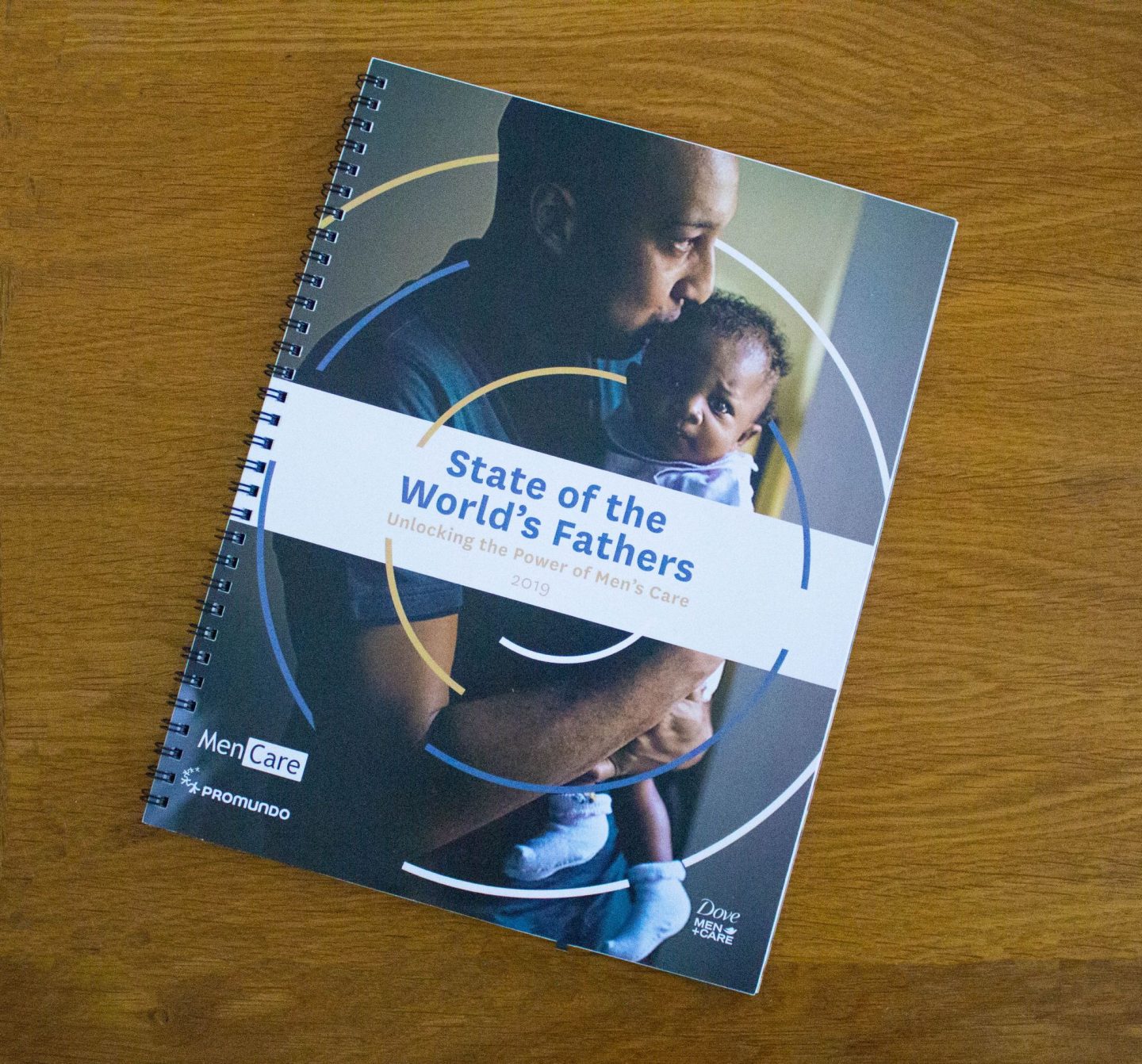
Although a simple conclusion, it is a bold one because there are many obstacles in the way preventing it from happening. If this aim can be achieved globally, the report states men and women will enjoy better, more supportive, constructive relationships, children will flourish in happier homes and women will have more workplace equality while pay disparities between the genders will be reduced if not vanish altogether.
What’s so important about the state of the world’s fathers report?
The State of the World’s Fathers Report is special for a few reasons. Firstly, this is not a ‘study’ based on a few hundred telephone interviews. The report is produced every two years (you can read about the 2015 report here) and this is its third incarnation.
It’s a comprehensive report relying on data and input from over 60 countries, giving it a truly international outlook and backed by the global MenCare movement, which seeks to: “Promote men’s and boys’ involvement as equitable, non-violent caregivers.”
Contributions come from a diverse range of men’s and women’s interest groups and development charities including: Promundo, Sonke Gender Justice, Save the Children, Plan International and the Mengage Alliance. On this occasion the report was produced in partnership with Unilever’s Dove Men+Care brand.
More than just 50 minutes
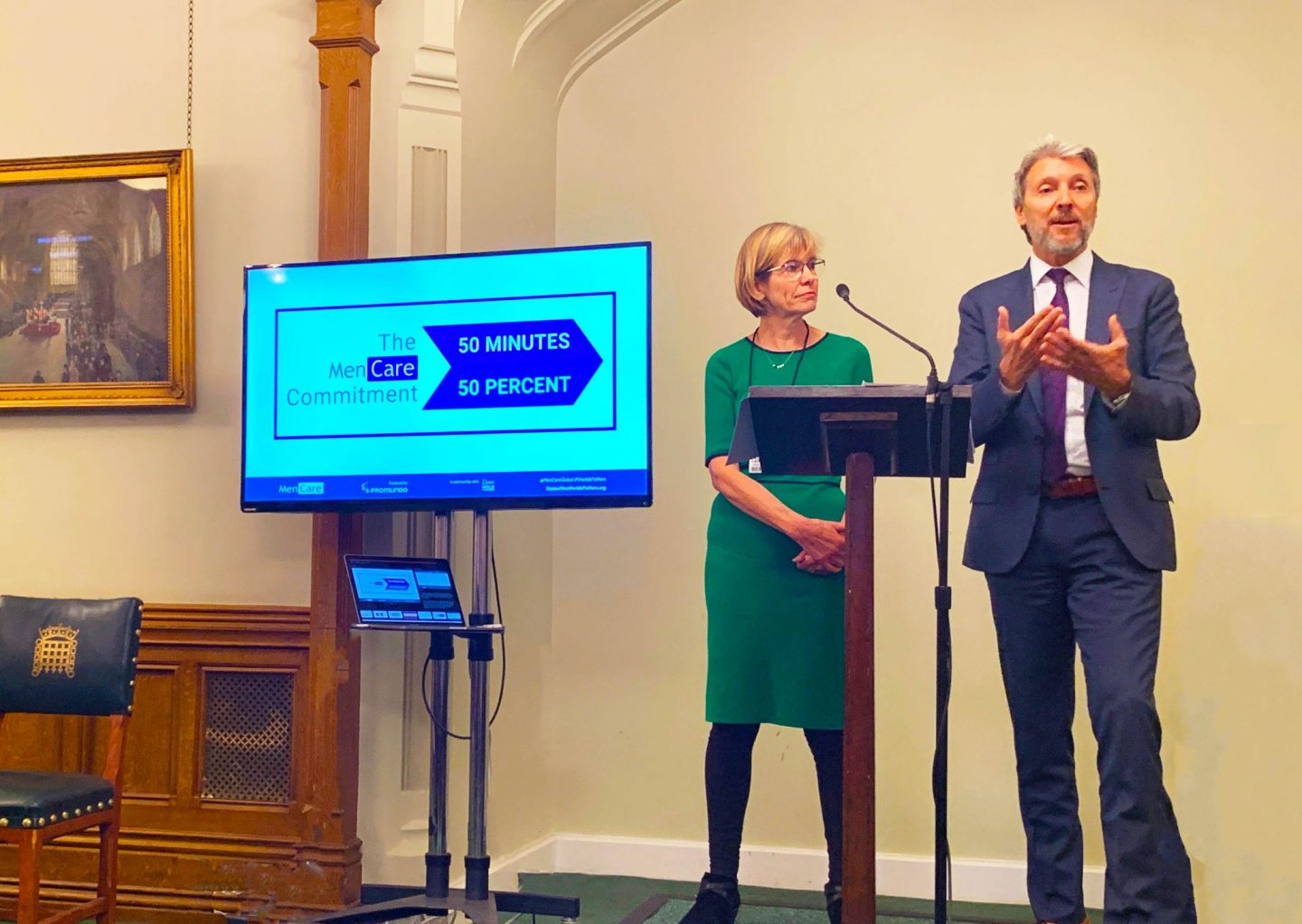
Suggesting that men should increase the amount of childcare they do each day by 50 minutes is a concrete, thought-provoking suggestion. I attended the UK launch of the report at the Palace of Westminster in London where numerous speakers including co-chair of the All Party Parliamentary Group on Fatherhood David Lammy MP and Marvyn Harrison from the Dope Black Dads support group put it into context (I will write about what they said another time. They need their own blog post to do it justice).
At the report’s launch, the following was highlighted:
- The amount of childcare and unpaid caring work men undertake each day has only increased by seven minutes over the past 15 years
- At current estimates and without intervention, it will take 202 years for men and women to undertake the same amount of unpaid care work.
- Within the UK, 93% of fathers want to be heavily involved in their child’s first years and months, yet 44% take only the two weeks of paternity leave they are legally entitled to and this is often paid at statutory levels. Take up of Shared Parental Leave (SPL) is still languishing in low single figures (although the official figures do not include men who take SPL on an unpaid basis so the precise figure is unknown and could be higher).
Speaking at the launch, Nikki van der Gaag and Greg Barker, who were both heavily involved in writing the report, highlighted an additional UK-specific statistic. They pointed out that in the UK, 80% of fathers and 73% of mothers are concerned by negative portrayals of dads in the media. The timing was perfect because new regulations have just come into place to ensure advertisers do not use unhelpful stereotypes in their advertising. This makes it a good moment to explain what is stopping dads from doing more at home as this kind of stereotyping does not help.
What is going wrong? Why aren’t men more involved in family life and caring?
It’s long been recognised that the key to getting men heavily involved with their families is to do so from the very earliest days. This, however, simply isn’t happening in many countries. According to the State of the World’s Fathers Report, only 48% of countries offer paid paternity leave following the birth of a child, and this can be as little as a few days. If a father earns more than his children’s mother, he often can’t afford to take time off work as he has to financially support the family.
The report also shows that gender stereotypes are alive and and well in many nation states. Drawing on data from 23 countries, significant proportions of men and women agreed that: “Changing diapers (nappies), giving baths to children and feeding children should be the mother’s / woman’s responsibility.”
What can be done to improve gender equality?
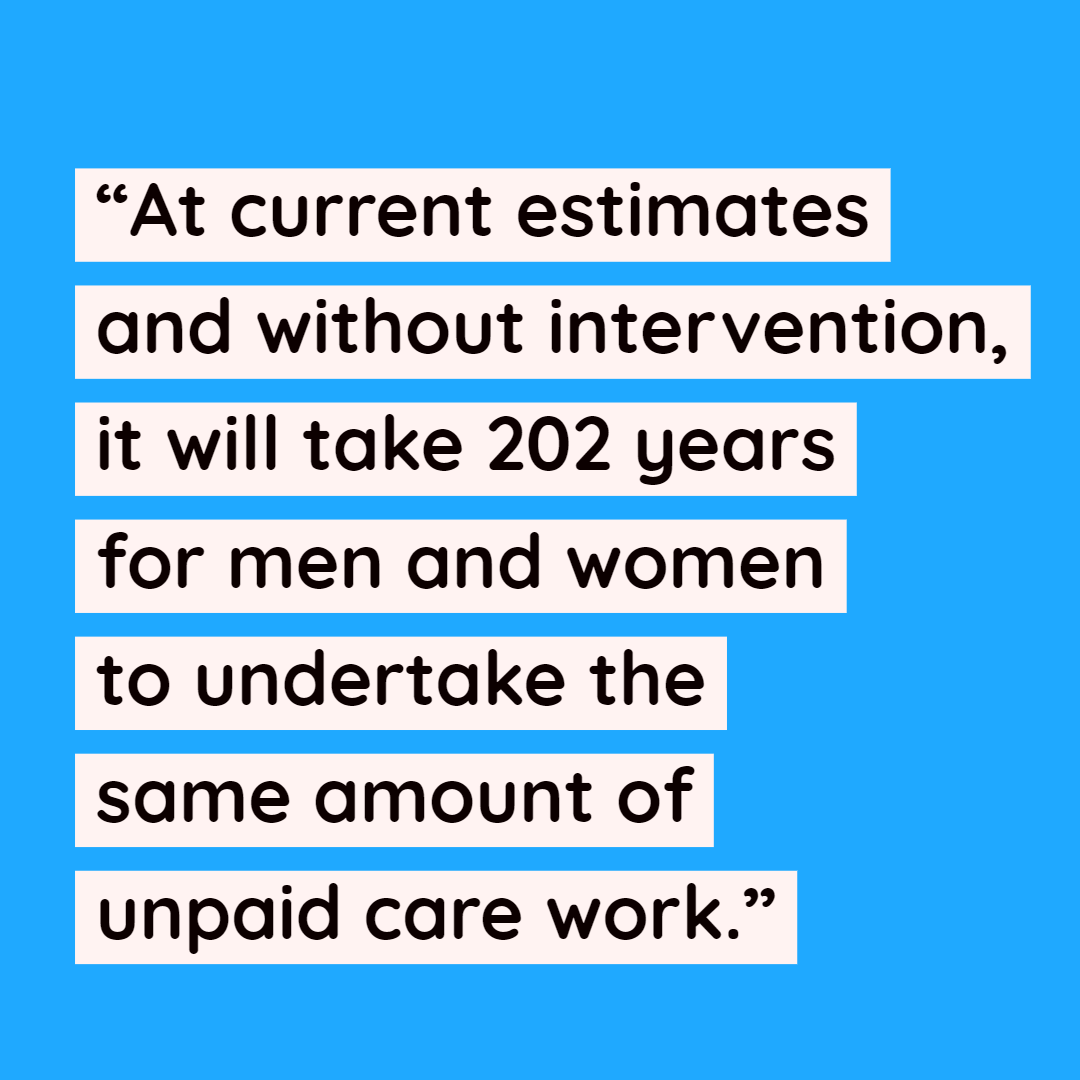
The State of the World’s Father’s report makes five suggestions to help men meet what its called the ’50 Minutes, 50 Percent’ challenge. They are:
- Laws and policies should be improved with greater consideration to fathers. Properly paid parental leave should be introduced, ring-fenced parental leave should be introduced for mums and dads and men should be more involved in creating policies affecting health and education, childcare and social protection.
- Transform social and gender norms. Policy and law changes won’t work on their own. The traditional idea that women are the “default” caregivers needs to be challenged. Governments should be encouraged to provide training to teachers, childcare workers, health care providers and so on. Education programmes should also be changed to highlight the value of caregiving to both girls and boys.
- Guarantee economic and physical security for vulnerable families. This is a very interesting point. In conflict situations, marginalised people such as refugees can see gender roles change if families get separated or family members are killed. Policies for dealing with families must reflect this and promote men’s involvement in care work.
- Help couples and co-parents thrive. Father specific training should be implemented and, the State of the World’s Fathers Report says, mandated to build men’s skills, confidence and competence to promote shared decision making and good communication with partners.
- Put individual fathers’ care into action. Fathers needs to take responsibility for their actions and ‘step up’ to do more each day. They should be encouarged to do 50% of unpaid care work and challenge the idea than men are merely “helping” with childcare and other caregiving responsibilities. men should be encouraged to particpiate in groups with their infants and children, build their confidence and skills and commit to sharing unpaid care and domestic work with their partners.
My opinion on the State of the World’s Fathers report 2019 and where to read it
I recall attending the launch of the first State of the World’s fathers Report back in 2015. While very exciting, it was a much more low key affair.
I think it says a lot that the foreword of the 2019 report was written by Ziauddin Yousafzai, father of Malala Yousafzai and co-founder of the Malala Fund. It demonstrated the report, while always international in nature, has nurtured a genuine international following. If you wish to read the report yourself, you’ll find it online at the Mencare website.
The explanations given as to why many men don’t do as much caregiving came as no surprise. I’ve lost count of the number of times I’ve heard it said that men need to be involved in policy making or father-inclusive training for private sector managers, teachers and the like could be improved.
Added to this, the issue of poorly paid paternity leave and societal expectations of what is expected of both men and women come up time again. They show there is a lot to be done to change gender stereotypes.
The five point plan makes a lot sense. What I really like about the report is that 50 minute 50 Percent challenge. This should and could be achievable for many families. It’s a tenable aim and in wealthier countries, should be easily achievable without too much if any Government intervention. In other nations, more work may be required but at the least it is a sensible aim and one hard to argue against.
What I think MenCare and Promundo need to be congratulated on, is producing another well-researched, broad, international overview of fatherhood, caregiving and what can be done to improve equality between men and women. I just hope it leads to some change.
Interested in this blog post? Well have a read of these...
 Gender and fatherhood: Q&A with campaigner Gary Barker
Gender and fatherhood: Q&A with campaigner Gary Barker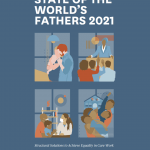 State of the World’s Fathers 2021: Is gender equality in reverse gear?
State of the World’s Fathers 2021: Is gender equality in reverse gear? Coronavirus school closures: an opportunity for parents?
Coronavirus school closures: an opportunity for parents? Q&A with Emily Leary, author of ‘Get Your Kids to Eat Anything’
Q&A with Emily Leary, author of ‘Get Your Kids to Eat Anything’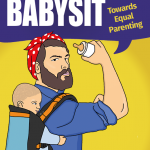 Dads Don’t Babysit, Towards Equal parenting: A good read?
Dads Don’t Babysit, Towards Equal parenting: A good read?


2 thoughts on “Fifty minutes to change the world: State of the World’s fathers Report 2019”
Very interesting. During term time i do everything for N apart from one pick up a week. Now N is older we split the childcare in holidays so i take half the time off, then he has him when I work. If you can call what the OH does as childcare. He takes N out on the farm or he goes to Granny’s or with his uncle if he can’t go with the OH. Granny feeds him during the hols when he’s with his dad. He never did anything before he could go out on the farm and didn’t need proper keeping an eye on.
For me, i love looking after N and sorting everything out for school etc. I wouldn’t want to miss that while the OH doesn’t even go to watch him at sports or parents evenings. He should show an interest but i wouldnt want to lose that. What i would like is a more even split on housework rather than the presumption that i do everything. That would be a better split and be a better example to N on teaching him equality for the future. .
It is fascinating reading how other people split domestic chores. You won’t be surprised to hear things work very differently in our household. My wife does struggle to attend sports day but I don’t think she’s ever missed a Nativity play. She does the school runs once every couple of months but there’s not anything she can’t do with the kids. I think as we swapped gender roles we’re a bi tmore gender aware. I think that’s quite common in couples such as ours. Good luck getting a more even split in the housework.